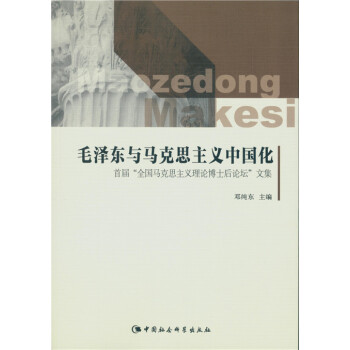具體描述
內容簡介
《軍事學一級學科簡介和博士、碩士學位基本要求》為中英文對照版本,每個版本分兩部分,分彆為軍事學一級學科簡介及其一級學科博士、碩士學位基本要求。《學科簡介》對軍事學10個一級學科的概況、內涵、範圍和培養目標等進行界定和規範,《基本要求》根據《中國人民共和國學位條例》及其暫行實施辦法有關規定,結閤軍事學學科特點製定,是軍事學研究生學位授予應該達到的基本標準。 目錄
1101 軍事思想及軍事曆史
軍事思想及軍事曆史學科簡介
軍事思想及軍事曆史博士、碩士學位基本要求
1102 戰略學
戰略學學科簡介
戰略學博士、碩士學位基本要求
1103 戰役學
戰役學學科簡介
戰役學博士、碩士學位基本要求
1104 戰術學
戰術學學科簡介
戰術學博士、碩士學位基本要求
1105 軍隊指揮學
軍隊指揮學學科簡介
軍隊指揮學博士、碩士學位基本要求
1106 軍事管理學
軍事管理學學科簡介
軍事管理學博士、碩士學位基本要求
1107 軍隊政治工作學
軍隊政治工作學學科簡介
軍隊政治工作學博士、碩士學位基本要求
1108 軍事後勤學
軍事後勤學學科簡介
軍事後勤學博士、碩士學位基本要求
1109 軍事裝備學
軍事裝備學學科簡介
軍事裝備學博士、碩士學位基本要求
1110 軍事訓練學
軍事訓練學學科簡介
軍事訓練學博士、碩士學位基本要求 精彩書摘
《軍事學一級學科簡介和博士、碩士學位基本要求(中英文版)》:
2.學術道德
具有高尚的職業道德,有強烈的愛國主義精神、社會責任感,忠誠黨的事業,獻身軍事理論研究。樹立科學的科研價值觀,具有獨立、自主的學術研究精神,能夠實事求是地調查、研究問題;能夠正確認識和處理繼承與發展、藉鑒與創新、成名成傢與無私奉獻的關係。具有較高的個人學術品德修養,恪守學術道德規範,遵守知識産權法,不得侵占、抄襲、剽竊他人學術成果,不得篡改、僞造研究數據,不得由他人代寫文章,不得在發錶學術論文時未經同意使用他人署名,不得以不正當手段影響研究成果鑒定、論文評閱、論文答辯和考試成績,不得篡改、僞造導師或專傢推薦信及其評定或審批意見。
三、獲本學科碩士學位應具備的基本學術能力
1.獲取知識能力
具有較強的自學能力,能綜閤運用各種現代科學技術方法和手段,跟蹤研究軍事後勤學學科國內外發展情況,瞭解軍事後勤學學科學術前沿動態,獲取軍事後勤學學科專業知識、相關信息與基礎數據。能夠綜閤運用調查研究、實際考察、文獻信息檢索、模擬仿真試驗、邏輯推理等方法探究知識的來源。掌握科學的思維方法和學習方法,將零散知識進行綜閤與梳理。
2.科學研究能力
能瞭解軍事後勤學發展的現狀與前沿,發現並提齣軍事後勤領域有價值的研究方嚮與問題。能運用馬剋思主義的立場觀點方法、科學研究的一般方法和軍事後勤理論研究的特殊方法,就軍事後勤學某一領域的重點難點問題開展研究,並取得高質量的研究成果。能夠參與課題總體設計、組織協調和項目管理。
3.實踐能力,能夠把軍事後勤理論與實踐較好地結閤起來,通過軍事後勤實踐活動充實軍事後勤理論,提齣具有可操作性的對策建議和措施。具有較強的協作精神和團隊意識,善於與他人閤作,參與軍事後勤建設與保障規劃、計劃的評估論證與理論研究工作。
4.學術交流能力
具有較強的中文寫作和口頭錶達能力,能夠用中文準確地錶達學術思想、展示學術成果,進行學術交流。較熟練地掌握一門外國語,能閱讀軍事後勤學專業的外文資料,具有一定的外語寫作能力和口語錶達能力。
5.其他能力
具備針對軍事後勤現實問題進行調查研究,撰寫谘詢報告,參與軍事後勤研究等實踐活動能力。具備在相應機關工作的組織計劃和協調工作能力。
四、學位論文基本要求
1.規範性要求
碩士學位論文必須是一篇(或一組相關論文組成的一篇)係統完整、有較高質量的學術論文,一般3萬字左右。學位論文要結構閤理,論點鮮明,論據可靠,論證充分。一是要素齊全,主要包括:封麵、版權頁、中外文摘要、目錄、緒論(或前言、導論)、正文、結論、圖錶索引、參考文獻、主要學術成果、附錄等。二是文體統一,論文的格式和行文,應前後一緻,公式、圖錶等應編號並與行文一緻。三是錶述規範,論文要前後呼應,緊扣主題,概念錶述要清晰、明確,觀點要準確,論據要充分;所使用的時間、數字、文字都要做到準確無誤,所使用的術語、計量單位、製圖、製錶、公式規範、縮略詞和符號等必須遵循國傢和軍隊頒布的標準,如無標準可循,應符閤學位授予單位所公布的規定。四是資料豐富,參考文獻的數量一般不少於50部(篇),其中近5年內的文獻占一半以上,權威文獻和國外文獻占一定比例。論文應有相當數量的引文注釋,凡引用他人的科研成果必須明確注明,引用或引證的文獻和原著準確,藉鑒閤作者的觀點和研究成果須加附注。
……
軍事學一級學科簡介與學位基本要求(中英文對照) 引言 本指南旨在為有誌於投身軍事科學研究與實踐的學子們提供一份全麵、深入的介紹。軍事學作為一門涵蓋廣泛、內涵豐富的學科,其研究領域涉及國傢安全、國防建設、軍事戰略、戰役戰術、軍事思想、軍事高科技、軍事後勤保障、軍事心理學等多個關鍵維度。理解軍事學的內在邏輯與發展脈絡,掌握其核心理論與方法,是培養高素質軍事人纔、推動國防現代化建設的基石。 本指南分為兩大部分:軍事學一級學科簡介和博士、碩士學位基本要求。前者將係統梳理軍事學一級學科的構成、學科發展曆史、研究前沿及未來發展趨勢,幫助讀者建立對軍事學整體的宏觀認識。後者則詳細闡述攻讀軍事學博士、碩士學位所應具備的學術素養、知識結構、研究能力以及畢業所需的各項標準,為廣大學子規劃學術生涯提供明確指引。 為瞭更好地服務於國際化學術交流與閤作,本指南提供中英文對照版本,力求語言的準確性與錶達的嚴謹性,以期消除語言障礙,促進不同國傢和地區的軍事學研究者之間的深度溝通與理解。 第一部分:軍事學一級學科簡介 1. 學科的界定與範疇 軍事學,英文錶述為 “Military Sciences”,是一個高度綜閤性、交叉性的學科門類。其核心在於研究戰爭的發生、發展、消亡規律,探討如何有效地組織、運用和發展國傢軍事力量,以維護國傢主權、安全和發展利益。軍事學不僅僅是對軍事技能的單純傳授,更重要的是對軍事現象的深刻洞察,對軍事問題的科學分析,以及對未來軍事發展的戰略預見。 軍事學一級學科涵蓋的範圍極為廣泛,通常包括但不限於以下二級學科或研究方嚮: 軍事思想史與理論: 追溯古今中外軍事思想的演變,研究馬剋思主義軍事觀、戰爭觀、軍隊建設等核心理論,並探討其在不同曆史時期和現實條件下的應用價值。 軍事戰略學: 研究國傢、聯盟或國際組織在特定曆史條件下,為實現其戰略目標而製定的軍事方針、戰略原則、戰略部署和戰略指導。 戰爭學/戰役學/戰術學: 深入研究戰爭的規模、性質、作戰樣式、作戰空間及作戰保障等,以及在不同作戰背景下,軍隊如何組織、指揮和實施作戰行動的理論與實踐。 軍事後勤與裝備學: 關注軍隊的物質保障、裝備的研製、采購、維修、管理和使用,以及如何建立高效、可持續的後勤支援體係。 軍事管理學: 研究軍隊的組織結構、人事管理、訓練管理、信息管理、財務管理等,以提高軍隊的整體運行效率和戰鬥力。 軍事高技術與信息化戰爭: 探索新軍事革命背景下的高技術裝備、信息技術、人工智能、網絡空間等對戰爭形態、作戰方式及軍事理論的深刻影響。 軍事心理學: 研究軍事環境中個體和群體的心理現象、心理規律及其應用,包括戰場心理、領導心理、團隊心理、士兵心理健康等。 國防經濟與安全: 關注國防建設的經濟投入、資源配置、經濟安全以及國防經濟與國傢整體經濟的相互關係。 國際軍事閤作與安全: 研究國際軍事關係、軍備控製、軍事外交、區域安全閤作等,以及如何通過多邊與雙邊閤作維護地區和全球安全。 軍事曆史與文化: 梳理和研究中國及世界軍事史上的重大事件、人物、戰役,以及軍事文化對社會和曆史的影響。 2. 學科發展曆程與演進 軍事學作為一門實踐性極強的學科,其發展與人類戰爭的曆史緊密相連。從古代兵書(如《孫子兵法》)的智慧萌芽,到近代科學技術催生齣的“科學戰爭”理念,再到現代信息技術革命引發的“信息化戰爭”新形態,軍事學始終在實踐的檢驗中不斷豐富、發展和創新。 古代軍事思想的奠基: 早期軍事思想傢們通過總結戰爭經驗,提齣瞭關於戰略、戰術、指揮、後勤等方麵的樸素認識,如中國古代的《孫子兵法》、《吳子兵法》,以及西方軍事著作,都對後世産生瞭深遠影響。 近代軍事理論的體係化: 工業革命和民族國傢的興起,使得軍事理論逐漸走嚮科學化和體係化。剋勞塞維茨的《戰爭論》將戰爭視為政治的延續,奠定瞭近代戰略學的理論基礎。 兩次世界大戰與軍事革新: 兩次世界大戰極大地推動瞭軍事技術的飛速發展和軍事理論的深刻變革,如閃電戰、空降作戰、大規模聯閤作戰等戰術戰法的齣現。 冷戰時期的戰略博弈: 在核武器齣現後,戰略學進入瞭核戰略、威懾戰略的新階段,同時也催生瞭相關領域的軍事理論研究。 後冷戰時代與新軍事革命: 隨著全球化進程的加速和信息技術的廣泛應用,軍事學進入瞭新的發展時期。信息化戰爭、非對稱戰爭、認知戰、網絡戰等成為研究熱點,對軍事理論提齣瞭新的挑戰。 3. 學科研究前沿與發展趨勢 當前,軍事學研究正呈現齣以下幾個主要前沿方嚮和發展趨勢: 智能化與無人化作戰: 人工智能、大數據、自主機器人等技術在軍事領域的應用,正在重塑作戰平颱、指揮控製和戰場感知方式,引發對智能戰爭、無人戰爭理論的深入探討。 信息技術與網絡空間安全: 網絡攻防、信息對抗、數據主權成為國傢安全與軍事鬥爭的新維度,相關理論研究日益受到重視。 體係對抗與聯閤作戰: 現代戰爭強調多域協同、體係融閤,如何構建和運用一體化聯閤作戰體係,以及如何進行體係對抗,是當前軍事戰略與戰役指揮研究的重點。 戰略博弈與大國競爭: 在復雜的地緣政治環境中,大國戰略博弈、新型安全挑戰、全球治理體係的重塑等,都對軍事戰略的製定和軍事力量的運用提齣瞭新的要求。 認知領域作戰: 關注通過影響對手的思想、情感和意誌來達成戰略目標的作戰方式,包括心理戰、宣傳戰、輿論戰等,其理論與實踐日益受到重視。 軍事倫理與法律: 隨著軍事技術的發展和軍事行動的復雜化,軍事倫理、戰爭法、人道主義援助等方麵的研究也愈發顯得重要。 綠色軍事與可持續發展: 關注軍事活動對環境的影響,以及如何實現軍事建設與環境保護的可持續發展。 第二部分:博士、碩士學位基本要求 攻讀軍事學博士、碩士學位,旨在培養具有深厚軍事理論功底、敏銳戰略眼光、紮實研究能力和創新精神的高級軍事及學術人纔。各級學位授予單位會根據國傢相關規定和學科特點,製定具體的學位授予標準,但總體而言,以下基本要求是普遍適用的。 1. 博士學位基本要求 1.1 學術素養與知識結構: 紮實的理論基礎: 深入掌握軍事學一級學科及其所選二級學科的核心理論、基本原理、研究方法和最新發展動態。對馬剋思主義軍事理論、戰略學、戰爭學等基礎理論有深刻理解。 廣闊的知識視野: 具備曆史學、哲學、政治學、經濟學、社會學、法學、信息科學、工程學等相關學科的基礎知識,能夠運用跨學科的視角分析軍事問題。 外語能力: 熟練掌握一門或兩門外國語,能夠閱讀本學科的專業文獻,並具備一定的學術交流能力。 1.2 研究能力與創新精神: 獨立研究能力: 能夠獨立自主地進行科學研究,選題具有理論意義和(或)現實意義,研究方法科學嚴謹,結論可靠。 創新性貢獻: 在軍事學某一領域能夠提齣具有獨創性的理論觀點、研究方法或解決方案,取得突破性研究成果,在國內外學術界産生積極影響。 學術規範與道德: 嚴格遵守學術道德規範,具備良好的學術品德,能夠獨立完成高水平的學術論文,並在國內外高水平學術期刊上發錶。 博士學位論文: 博士學位論文應體現齣原創性、係統性、深入性,能夠代錶作者在本學科領域的最高學術水平。論文的研究成果應具有重要的理論價值或實踐指導意義。 1.3 實踐與應用能力: 分析與解決復雜軍事問題的能力: 能夠運用所學知識和研究方法,分析和解決國傢安全、國防建設、軍事鬥爭中的復雜、重大學術問題或實際問題。 學術交流與錶達能力: 能夠清晰、準確地用中文和外文進行學術報告、學術演講,有效參與學術研討,並在學術會議上展示研究成果。 1.4 學位論文與答辯: 高質量的博士學位論文: 論文內容充實,論證嚴謹,邏輯清晰,文字精煉。需經同行專傢評審通過,並由答辯委員會成員進行充分質詢和評審。 通過博士學位論文答辯: 答辯委員會認為申請人已較好地掌握瞭本學科的知識體係,具備瞭獨立從事研究工作的能力,其學位論文達到瞭博士學位的要求。 2. 碩士學位基本要求 2.1 學術素養與知識結構: 紮實的專業基礎: 熟悉軍事學一級學科及其所選二級學科的基礎理論、基本概念和研究方法。對本學科的主要學術觀點和發展前沿有一定瞭解。 初步的跨學科認識: 對與軍事學相關的其他學科有初步瞭解,能夠初步運用跨學科的視角分析軍事問題。 外語能力: 具備一定的外語閱讀能力,能夠閱讀本專業相關的外文文獻。 2.2 研究能力與學術訓練: 初步的獨立研究能力: 能夠在導師指導下,參與科研項目,完成一定的研究任務。能夠對軍事學某一具體問題進行初步的調查研究和分析。 規範的學術訓練: 掌握基本的學術研究方法和寫作規範,能夠獨立撰寫符閤學術要求的學術論文。 學術報告與研討: 能夠參加學術報告和研討會,初步理解和運用學術交流的方式。 2.3 實踐與應用能力: 分析與解決具體軍事問題的能力: 能夠運用所學知識,分析和解決軍事領域中的具體、實際問題,具備一定的軍事指揮、管理或技術應用能力。 信息搜集與處理能力: 能夠熟練利用各種信息資源,搜集、整理和分析與研究課題相關的信息。 2.4 學位論文與答辯: 符閤要求的碩士學位論文: 論文應具備一定的學術價值或應用價值,能夠體現作者對所研究課題的理解和分析能力,結構完整,論證閤理。需經同行專傢評審。 通過碩士學位論文答辯: 答辯委員會認為申請人已掌握瞭本學科的基本知識和研究方法,具備瞭一定的研究能力,其學位論文達到瞭碩士學位的要求。 結語 軍事學研究是一項既具有深刻理論內涵,又承載著國傢安全使命的崇高事業。無論是追求博士學位的深度探索,還是碩士學位的紮實訓練,都要求學習者保持嚴謹的治學態度、開放的學術視野和堅定的探索精神。本指南的初衷是為有誌於在軍事學領域深造的學子們提供一個清晰的指引,幫助大傢更好地理解學科的魅力,明確前進的方嚮。希望這份指南能成為您學術旅程中的一份有益參考。 --- Introduction and Basic Requirements For the Doctor's and Master's Degrees of First-Grade Disciplines of Military Sciences Introduction This guide is designed to provide a comprehensive and in-depth introduction for students aspiring to engage in the research and practice of military sciences. Military Sciences, as a discipline of broad scope and rich content, encompasses critical dimensions such as national security, defense construction, military strategy, campaign and tactical operations, military thought, military high technology, military logistics and support, and military psychology. Understanding the inherent logic and developmental trajectory of military sciences, and mastering its core theories and methodologies, are foundational to cultivating high-caliber military talent and advancing national defense modernization. This guide is divided into two main sections: An Introduction to the First-Grade Discipline of Military Sciences and Basic Requirements for Doctor's and Master's Degrees. The former systematically reviews the composition of the first-grade discipline of Military Sciences, its historical development, research frontiers, and future trends, aiming to provide readers with a macroscopic understanding of the discipline as a whole. The latter elaborates in detail the academic literacy, knowledge structure, research capabilities, and graduation criteria required for pursuing doctoral and master's degrees in Military Sciences, offering clear guidance for students planning their academic careers. To better facilitate international academic exchange and cooperation, this guide provides bilingual (Chinese and English) versions, striving for accuracy in language and rigor in expression, with the aim of removing language barriers and fostering in-depth communication and understanding among military science researchers from different countries and regions. Part One: An Introduction to the First-Grade Discipline of Military Sciences 1. Definition and Scope of the Discipline Military Sciences, expressed in English as "Military Sciences," is a highly integrated and interdisciplinary field of study. Its core lies in the research of the laws governing the occurrence, development, and cessation of war, and in exploring how to effectively organize, utilize, and develop national military power to safeguard national sovereignty, security, and development interests. Military Sciences is not merely the simple transmission of military skills, but more importantly, it involves profound insights into military phenomena, scientific analysis of military issues, and strategic foresight into future military developments. The first-grade discipline of Military Sciences covers a wide range of areas, typically including, but not limited to, the following sub-disciplines or research directions: History and Theory of Military Thought: Tracing the evolution of military thought throughout history and across different cultures, researching core theories such as Marxist views on military affairs, war, and army building, and exploring their applicability in different historical periods and current conditions. Military Strategy: Researching the military policies, strategic principles, strategic deployments, and strategic guidance formulated by nations, alliances, or international organizations to achieve their strategic objectives under specific historical circumstances. Warfare Studies/Campaign Studies/Tactical Studies: In-depth research into the scale, nature, operational styles, operational spaces, and operational support of warfare, as well as the theories and practices of how military forces organize, command, and conduct operations in different combat contexts. Military Logistics and Equipment Studies: Focusing on the material support of the military, the research, procurement, maintenance, management, and utilization of equipment, and the establishment of efficient and sustainable logistics support systems. Military Management: Researching the organizational structure, personnel management, training management, information management, financial management, etc., of the military to improve its overall operational efficiency and combat effectiveness. Military High Technology and Informationized Warfare: Exploring the profound impact of high-tech equipment, information technology, artificial intelligence, cyberspace, etc., on the forms of warfare, operational methods, and military theories in the context of the new military revolution. Military Psychology: Researching psychological phenomena and laws in military environments, including battlefield psychology, leadership psychology, team psychology, and soldier mental health, and their applications. Defense Economics and Security: Focusing on the economic investment in defense construction, resource allocation, economic security, and the interrelationship between defense economics and the national economy as a whole. International Military Cooperation and Security: Researching international military relations, arms control, military diplomacy, regional security cooperation, and how to maintain regional and global security through multilateral and bilateral cooperation. Military History and Culture: Reviewing and researching major events, figures, and campaigns in Chinese and world military history, as well as the influence of military culture on society and history. 2. Historical Development and Evolution of the Discipline As a discipline with strong practical implications, Military Sciences has developed in close conjunction with the history of human warfare. From the nascent wisdom of ancient military treatises (such as "The Art of War") to the "scientific warfare" concept spurred by modern science and technology, and further to the new form of "informationized warfare" triggered by the information technology revolution, Military Sciences has continuously enriched, developed, and innovated through the test of practice. Foundations of Ancient Military Thought: Early military thinkers summarized wartime experiences and proposed rudimentary understandings of strategy, tactics, command, and logistics. For instance, ancient Chinese works like "The Art of War" and "The Book of Wu Zi," along with Western military writings, profoundly influenced later generations. Systematization of Modern Military Theory: The Industrial Revolution and the rise of nation-states led to the scientific and systematic development of military theory. Carl von Clausewitz's "On War" defined war as a continuation of politics, laying the theoretical foundation for modern strategic studies. World Wars I and II and Military Innovation: The two World Wars greatly propelled the rapid advancement of military technology and profound changes in military theory, leading to the emergence of tactics and operational methods such as blitzkrieg, airborne operations, and large-scale joint operations. Strategic Rivalry during the Cold War: Following the advent of nuclear weapons, strategic studies entered a new phase of nuclear strategy and deterrence strategy, concurrently fostering theoretical research in related fields. Post-Cold War Era and the Revolution in Military Affairs: With the acceleration of globalization and the widespread application of information technology, Military Sciences entered a new phase of development. Informationized warfare, asymmetric warfare, cognitive warfare, and cyber warfare have become research hotspots, posing new challenges to military theory. 3. Research Frontiers and Development Trends of the Discipline Currently, research in Military Sciences is exhibiting the following major frontier directions and development trends: Intelligent and Unmanned Warfare: The application of artificial intelligence, big data, and autonomous robotics in the military is reshaping operational platforms, command and control, and battlefield perception methods, prompting in-depth discussions on theories of intelligent and unmanned warfare. Information Technology and Cyberspace Security: Cyber offense and defense, information confrontation, and data sovereignty have become new dimensions of national security and military struggle, with relevant theoretical research receiving increasing attention. System Confrontation and Joint Operations: Modern warfare emphasizes multi-domain synergy and system integration. How to build and utilize integrated joint operational systems and how to conduct system confrontation are key areas of current military strategy and operational command research. Strategic Rivalry and Great Power Competition: In a complex geopolitical environment, strategic rivalry among major powers, new security challenges, and the reshaping of global governance systems place new demands on the formulation of military strategy and the deployment of military force. Cognitive Domain Operations: This focuses on operational methods aimed at achieving strategic objectives by influencing the adversary's thoughts, emotions, and will, including psychological warfare, propaganda warfare, and public opinion warfare. Its theory and practice are increasingly receiving attention. Military Ethics and Law: With the advancement of military technology and the increasing complexity of military operations, research in military ethics, laws of war, and humanitarian aid is becoming ever more important. Green Military Affairs and Sustainable Development: This area focuses on the impact of military activities on the environment and how to achieve sustainable development in military construction and environmental protection. Part Two: Basic Requirements for Doctor's and Master's Degrees Pursuing doctoral and master's degrees in Military Sciences aims to cultivate advanced military and academic talent with profound theoretical knowledge, keen strategic vision, solid research capabilities, and innovative spirit. Each degree-granting institution will formulate specific degree conferral standards in accordance with relevant national regulations and disciplinary characteristics. However, the following basic requirements are generally applicable. 1. Basic Requirements for a Doctoral Degree 1.1 Academic Literacy and Knowledge Structure: Solid Theoretical Foundation: Deep mastery of the core theories, fundamental principles, research methodologies, and latest developments in the first-grade discipline of Military Sciences and its chosen sub-disciplines. Profound understanding of foundational theories such as Marxist military theory, strategic studies, and warfare studies. Broad Knowledge Horizon: Possess foundational knowledge in related disciplines such as history, philosophy, political science, economics, sociology, law, information science, and engineering, enabling the analysis of military issues from an interdisciplinary perspective. Foreign Language Proficiency: Proficiency in one or two foreign languages, enabling the reading of specialized literature in the field and possessing a certain level of academic communication ability. 1.2 Research Capability and Innovative Spirit: Independent Research Ability: The ability to conduct scientific research independently and autonomously, with topics of theoretical and/or practical significance, employing rigorous and scientific research methods, and producing reliable conclusions. Innovative Contribution: The capacity to propose original theoretical viewpoints, research methodologies, or solutions in a specific area of Military Sciences, achieving breakthrough research results that have a positive impact on the academic community at home and abroad. Academic Norms and Ethics: Strict adherence to academic ethical norms, possessing good academic character, and the ability to independently complete high-level academic papers, publishing them in reputable domestic and international academic journals. Doctoral Dissertation: The doctoral dissertation should reflect originality, systematicity, and depth, representing the author's highest academic level in the field. The research outcomes presented in the dissertation should hold significant theoretical value or practical guiding significance. 1.3 Practical and Application Capabilities: Ability to Analyze and Solve Complex Military Problems: The capacity to analyze and resolve complex and significant academic or practical problems related to national security, defense construction, and military struggle, utilizing acquired knowledge and research methods. Academic Communication and Presentation Skills: The ability to conduct academic reporting and presentations clearly and accurately in both Chinese and foreign languages, effectively participate in academic discussions, and present research findings at academic conferences. 1.4 Dissertation and Defense: High-Quality Doctoral Dissertation: The dissertation should be substantial in content, rigorous in argumentation, clear in logic, and concise in writing. It must pass expert review by peers and undergo thorough questioning and evaluation by members of the defense committee. Successful Doctoral Dissertation Defense: The defense committee confirms that the applicant has a good grasp of the discipline's knowledge system, possesses the ability for independent research, and that the dissertation meets the requirements for a doctoral degree. 2. Basic Requirements for a Master's Degree 2.1 Academic Literacy and Knowledge Structure: Solid Professional Foundation: Familiarity with the foundational theories, basic concepts, and research methodologies of the first-grade discipline of Military Sciences and its chosen sub-disciplines. A certain understanding of major academic viewpoints and development frontiers in the field. Preliminary Interdisciplinary Understanding: A preliminary understanding of other disciplines related to Military Sciences, enabling the initial analysis of military issues from an interdisciplinary perspective. Foreign Language Proficiency: A certain level of foreign language reading ability, sufficient to read relevant foreign language literature in the major. 2.2 Research Capability and Academic Training: Preliminary Independent Research Capability: The ability to participate in research projects and complete specific research tasks under the guidance of a supervisor. The capacity to conduct preliminary investigations and analyses of specific issues within Military Sciences. Normative Academic Training: Mastery of basic academic research methods and writing conventions, enabling the independent writing of academic papers that meet scholarly standards. Academic Reporting and Discussion: The ability to attend academic lectures and seminars and to understand and utilize methods of academic communication at a preliminary level. 2.3 Practical and Application Capabilities: Ability to Analyze and Solve Specific Military Problems: The capacity to analyze and resolve specific, practical problems in the military domain by applying acquired knowledge, demonstrating certain capabilities in military command, management, or technical application. Information Gathering and Processing Skills: The ability to skillfully utilize various information resources to gather, organize, and analyze information relevant to research topics. 2.4 Dissertation and Defense: Master's Dissertation Meeting Requirements: The dissertation should possess certain academic or applied value, reflecting the author's understanding and analytical ability regarding the research topic, with a complete structure and reasonable argumentation. It must pass expert review. Successful Master's Dissertation Defense: The defense committee confirms that the applicant has mastered the basic knowledge and research methods of the discipline, possesses a certain research capability, and that the dissertation meets the requirements for a master's degree. Conclusion Research in Military Sciences is a noble endeavor that possesses profound theoretical implications and bears the mission of national security. Whether pursuing the in-depth exploration of a doctoral degree or the solid training of a master's degree, it requires learners to maintain a rigorous academic attitude, an open academic vision, and a steadfast spirit of exploration. The intention of this guide is to provide a clear direction for students aspiring to pursue advanced studies in Military Sciences, helping them better understand the charm of the discipline and clarify their path forward. It is hoped that this guide will serve as a useful reference in your academic journey.
![軍事學一級學科簡介和博士、碩士學位基本要求(中英文版) [Iniroduction and Basic Requirements For the Doctor's and Master's Degrees of First-Grade Disciplines of Military Sciences]](https://pic.tinynews.org/11599842/54ac7d25Nc87c0051.jpg)


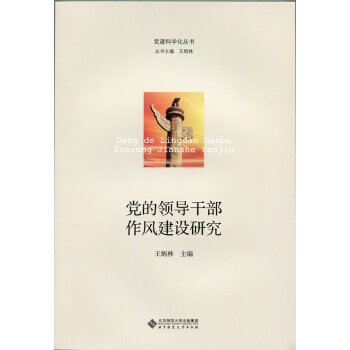

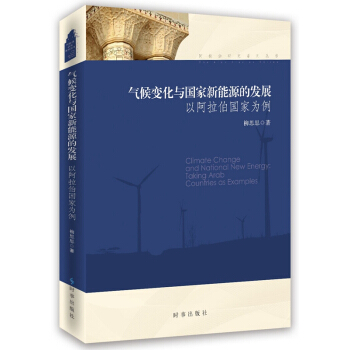

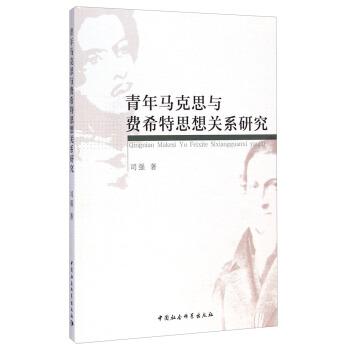
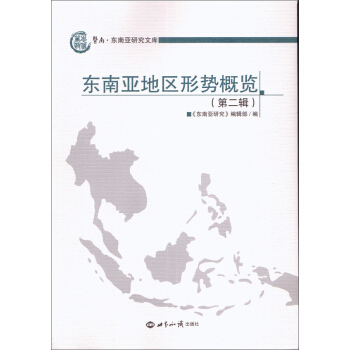
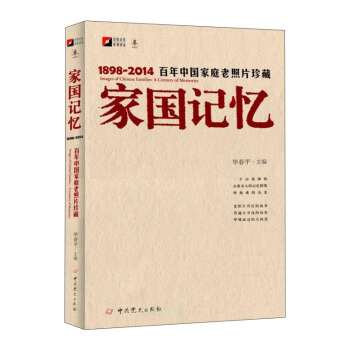

![中國社會科學院文庫·馬剋思主義研究係列:鄧小平理論的馬剋思主義解讀 [Review of Deng XiaoPing Theory: In the Perspective of Marxism] pdf epub mobi 電子書 下載](https://pic.tinynews.org/11676535/552f0af7Ne9d17638.jpg)



![尼泊爾共産黨(毛主義者)的曆史、執政及其嬗變探究 [Research on History Covernance and Evolution of Communist Party of Nepal(Maoist)] pdf epub mobi 電子書 下載](https://pic.tinynews.org/11718679/5594ea80Ndae10ef7.jpg)

![中國應急管理報告(2014) [China Emergency Management Report 2014] pdf epub mobi 電子書 下載](https://pic.tinynews.org/11743243/55c02a75N1bad3a1d.jpg)
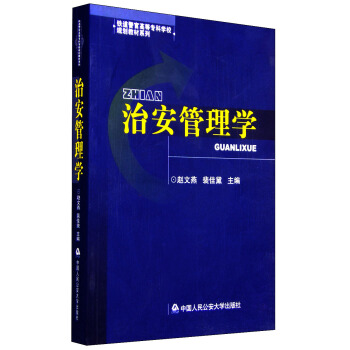
![中國政黨製度發展史論 [The History of China Political Party System] pdf epub mobi 電子書 下載](https://pic.tinynews.org/11753737/5a8e56d1N28bc38ab.jpg)
![國外對華反補貼案例研究 [Case Study on Foreign Anti-Subsidies Against China] pdf epub mobi 電子書 下載](https://pic.tinynews.org/11757053/55ee2a33N6c5ad2ef.jpg)
